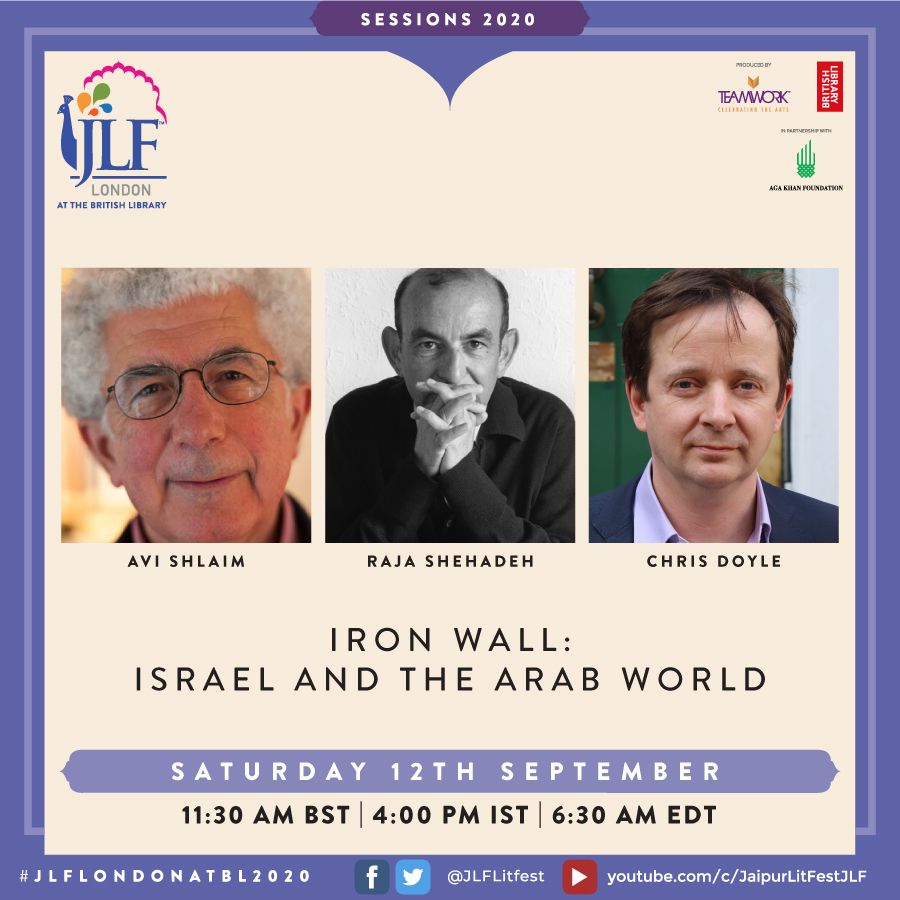


Iron Wall
Last week, the Trump administration announced that they had succeeded in establishing full diplomatic relations between the Kingdom of Bahrain and Israel. This comes barely a month after the United Arab Emirates had done the same. One can imagine that this would be considered a betrayal of the Palestinian cause by the Arab world as most political commentaries seem to indicate that Saudi Arabia may soon follow suit in establishing full political relations with Israel. The wrangling of geopolitics which is moulding this unusual alliance, possibly to counter the regional threat posed by Iran may well leave the Palestinian state high and dry and without its Arab allies.
The evolution of Israel and the flashpoint on the banks of the Jordan river, where the Judaeo-Christian world collided with the indigenous people is not new in history. Biblical records of the Old Testament have detailed descriptions of how the Jews were repeatedly attacked by various tribes and how Moses was promised a land by God for the descendants of Jacob whose other name was Israel. Jewish settlers were led to war and occupation by kings like David and Solomon, a thousand years before the birth of Christ. Modern history has continued in a similar vein of changing political fortunes and violence interrupted by brief periods of treaties of peace. And historians have written thousands of pages of research-enriched books on this geographical area of the world.
Avi Shlaim is an Arab Jew and a historian who has written several titles on the subject including the latest one –‘The Iron Wall: Israel and the Arab World’. He, along with the eminent Palestinian scholar – Raja Shehadeh, spoke about their reactions to these new developments in Israelidiplomacy and how the recent history of Israel has been riddled by its reluctance to accept every available overture of peace extended by the Palestinians. Speaking at the #JLFLondon at the British Library, they spoke of their experiences of living with Palestinian displacement and what Avi described unequivocally as the “apartheid state†of Israel.
Shlaim’s book draws its “Iron Wall†title from a theory by Zeev Jabotinsky – the political founder of Right-wing Zionism, from the 1920s. The theory stated that there was no chance that the Palestinians and other Arabs would accept Zionism's aim of a Jewish majority in Palestine. The only way Zionism could succeed was if the Jews built an ''iron wall'' of military force that the Arabs were powerless to penetrate. Shlaim says that this was accepted as a guiding principle for the nation.And following this path, over the years, Israel has scuttled all available mechanisms to succeed at the negotiating table and has closedevery window of opportunity for lasting peace.
Schlaim spoke at length of the landmark Oslo accord signed in 1993 by Yitzhak Rabin and Yasser Arafat that had lent a glimmer of hope for peace between the two warring factions. However,it soon fell apart, partly aided by Binyamin Netanyahu and Ariel Sharon,with the situation returning to a grim status quo.
Shlaim sees Israel's version of the war as the propaganda of the victors, and the image of the war as a “striking example of the way in which history can be manipulated to serve nationalist endsâ€. Not only has Israel succeeded in its obstinacy to thwart genuine hopes of a two-state solution but has also spawned violent opposition in the form of Hamas and Hezbollah.
The withdrawal of the border of Israel from Gaza has also been a strategy to isolate Gaza and to prevent any effective national Palestinian resistance to the occupation by removing the Hamas-ruled population from the Israeli demographic. A disappointed Schlaim said, “Today Gaza is an open-air prison. There is no solution to Gaza or any prospect of peace. Every few years there is a massive attack on civilians – and in my opinion, these are acts of state terrorism by Israel.â€Essentially, it's an ideology that breaks down as: the best defence is a good offense.
Answering a question on how military and religious conflict can be eradicated, Raja said that currently this tiny piece of land is occupied by two nations – Israel and Palestine and neither side will give up on the struggle and will have to find a way to live together. While Israel has progressively occupied land with the intent of colonising, Raja said, it has succeeded in colonising the land but not in colonising the people. “The Israeli language has not been acquired, the feeling of Palestinian sentiment has not diminished; rather it has increased. So, Israel hasn’t succeeded in colonising and that is very important.â€
Avi Sclaim added a glimmer of hope, speaking about the growing grassroots’ movement – Boycott Divestment and Sanctions (BDS) that is being championed by the youth, aiming to end the Israeli occupation.
Closing this deep discussion, Raja said that war cannot be justified in the Israeli-Palestine conflict and the solution will have to be sought by civil society which will eventually have to take a stand against Israel’s apartheid policy which states that Hebrew is the official language and the right of national self-determination is "unique to the Jewish peopleâ€.
When this law was passed in the parliament in 2018, Ayman Odeh, the head of the Arab Joint List, had said in a statement quoted by The Associated Press, “Today, I will have to tell my children, along with all the children of Palestinian Arab towns in the country, that the state has declared that it does not want us here." That pronouncement of hopelessness and isolation will have to be rescinded in the Holy Land and it is the people who need to act and rebuild this fractured territory that has been written of as a ‘Godly’ promise.
Only, this time the promise is not just to the Jews but to everyone in equal measure.



Leave a comment